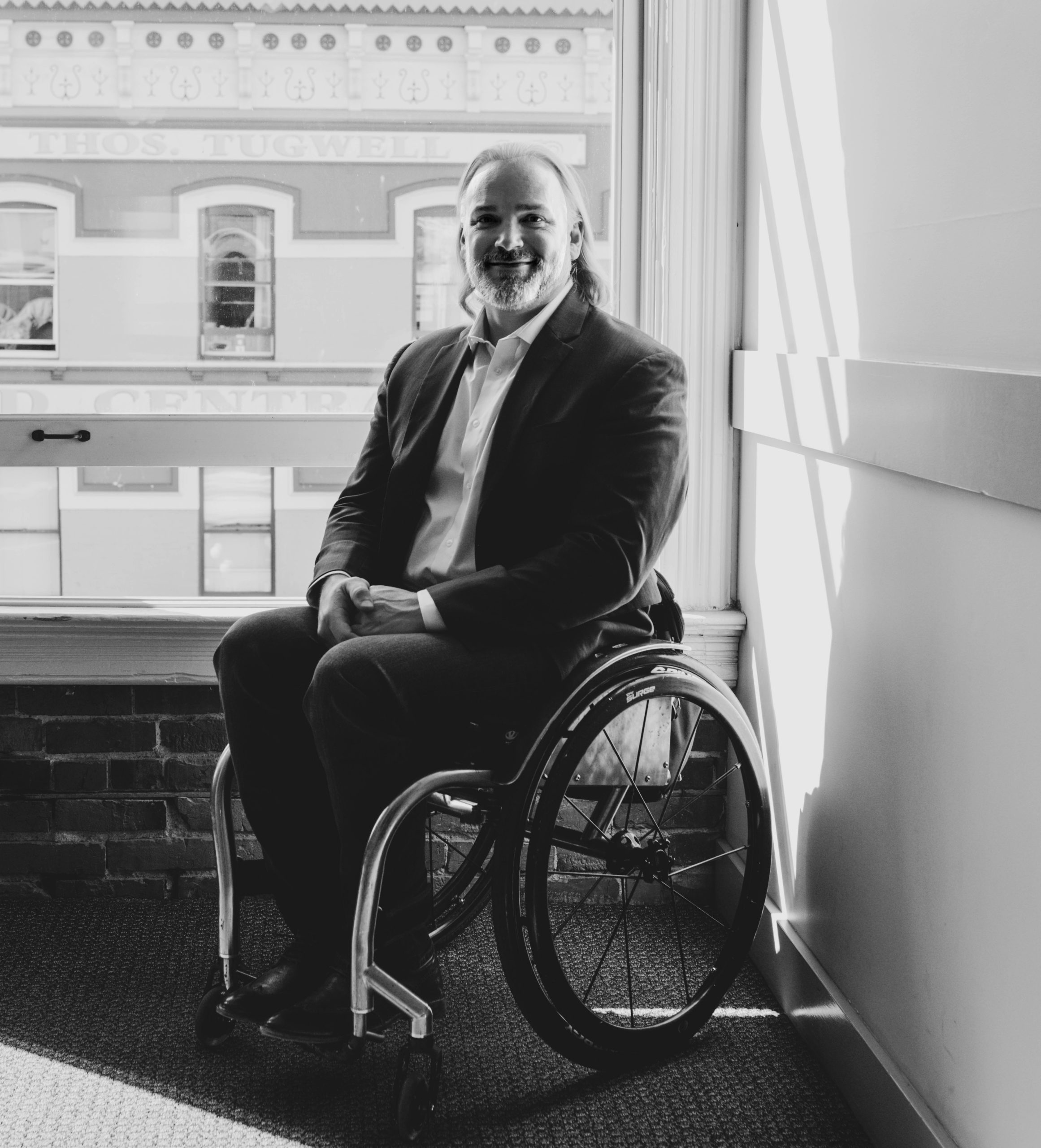Ben Almond on Redefining Resilience

Ben Almond has recently completed his term on the Praxis Board of Directors, where his leadership and vision made a lasting impact. As he embarks on an exciting new professional chapter, we thank him for his invaluable contributions to Praxis. Ben’s guidance has been instrumental in advancing our mission, and we wish him success in taking on new challenges and providing leadership in the next phase of his life.
To Ben Almond, it’s ability over disability.
While the way you do something may change, being able to accomplish it shouldn’t.In 2005, a downhill mountain biking accident gave this new meaning to Ben when he sustained a T8 spinal cord injury that left him paralyzed from the waist down.
“In that moment, a new world was presented to me. Simple things like stairs, curbs, the top shelf, and ice in the winter became challenges – and I felt very exposed,” he says. “I had to redefine resilience, look for solutions differently, and come to the realization that my wheelchair is a tool to enable success.”
According to research from the World Health Organization, around 16 per cent of the world’s population (which is more than one billion people) are living with a disability. In Canada, the 2022 Canadian Survey on Disability highlights that 27 per cent of people, aged 15 years and older, are living with more than one disability. From 2017 to 2022, this increased by five per cent, from 6.2 million to 8 million people.
“The reality is that most people will experience a disability at some point in their lives,” says Ben, who has recently finished a six-year term serving on the Praxis Spinal Cord Institute Board. “This, combined with our aging population, is creating an unbearable load on our health care system.”
Ben believes that greater health equity can be achieved if we focus on the commonalities of disabilities, rather than siloed concerns. For example, a curb cut makes streets accessible for wheelchair users, and it also improves mobility and lessens challenges for anyone pushing a stroller, riding a scooter or using a walker or white cane.
“When we create solutions for those facing the most significant barriers, we all benefit,” he says. “The work at Praxis is important because it enables collaboration across the global spinal cord injury community to accelerate research, share learnings and best practices, reduce costs and ultimately improve the lives of those living with spinal cord injury. While this work is inspired by a mission to create a world without paralysis, it is truly valuable to anyone who experiences mobility issues.”
“Praxis is an accelerator for spinal cord injury (SCI) research. SCI is a difficult area for researchers as there is simply not enough data available. Praxis facilitates connection between those doing the work to further it and facilitates pathways for innovation for the most promising technology developments in the space,” adds Ben. “When you look at the way someone is treated with an acute spinal cord injury today, it’s drastically different than my experience 20 years ago. Praxis has played a big part in this.”
Ben’s professional background encompasses several leadership roles for large international companies focused on sustainable long-term energy solutions. As a highly accomplished CEO and Top 40 Under 40 executive, he credits his professional success to the breadth of his experiences. While he first questioned the value he could bring to the Praxis Board, he quickly came to realize how his lived experience and business acumen could strengthen and support the important work being done within the field.


